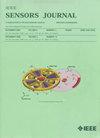一种具有时延和断点容忍的动态均衡路由协议
IF 4.3
2区 综合性期刊
Q1 ENGINEERING, ELECTRICAL & ELECTRONIC
引用次数: 0
摘要
对水下网络的研究已经进行了几十年。然而,对高度动态和可重构水下系统不断变化的操作需求表明,传统的网络研究局限于固定基础设施或混合拓扑,自主水下航行器(AUV)参与最少,它们往往无法解决完全移动自组织配置的挑战。因此,本文为推进自组织移动水声网络(AMUANs)的研究做出了三个关键贡献。首先,我们对当前的限制进行了全面的分析,并为关键的AMUAN需求建立了专用的解决方案。其次,我们提出了一种新的轻量级动态自适应路由算法,专门针对通信条件有限的水下环境进行了优化。我们的方法的特点包括基于机会路由(OR)原则的延迟/中断容忍协议和用于邻居管理和转发策略优化的创新多参数融合平衡算法。第三,通过广泛的模拟评估延迟、能源效率、安全性和网络寿命,我们证明了与现有解决方案相比,我们的方案具有优越的性能。结果特别突出了在动态高负载条件下的卓越适应性(比传统方法降低15%的延迟)和强大的恶意节点检测(安全性提高25%),展示了其显着优势和更广泛应用的潜力。本文章由计算机程序翻译,如有差异,请以英文原文为准。
A Dynamic Equilibrium Routing Protocol With Delay and Break Tolerance for UANs
Research on underwater networks has been ongoing for decades. Nevertheless, the evolving operational requirements for highly dynamic and reconfigurable underwater systems demonstrate the insufficiency of traditional network studies constrained to either fixed infrastructure or hybrid topologies with minimal autonomous underwater vehicle (AUV) participation, they often fail to address the challenges of fully mobile ad hoc configurations. Therefore, this article makes three key contributions to advance research on ad hoc mobile underwater acoustic networks (AMUANs). First, we present a comprehensive analysis of current limitations and establish the dedicated solution for critical AMUAN needs. Second, we propose a novel lightweight dynamic adaptive routing algorithm specifically optimized for underwater environments with limited communication conditions. Our approach features include a delay/disruption-tolerant protocol based on opportunistic routing (OR) principles and an innovative multiparameter fusion equilibrium algorithm for neighborhood management and forwarding strategy optimization. Third, through extensive simulations evaluating delay, energy efficiency, security, and network lifetime, we demonstrate our scheme’s superior performance compared to existing solutions. The results particularly highlight exceptional adaptability in dynamic high-load conditions (achieving 15% lower latency than conventional methods) and robust malicious node detection (with 25% security improvement), showcasing its significant advantages and potential for broader application.
求助全文
通过发布文献求助,成功后即可免费获取论文全文。
去求助
来源期刊

IEEE Sensors Journal
工程技术-工程:电子与电气
CiteScore
7.70
自引率
14.00%
发文量
2058
审稿时长
5.2 months
期刊介绍:
The fields of interest of the IEEE Sensors Journal are the theory, design , fabrication, manufacturing and applications of devices for sensing and transducing physical, chemical and biological phenomena, with emphasis on the electronics and physics aspect of sensors and integrated sensors-actuators. IEEE Sensors Journal deals with the following:
-Sensor Phenomenology, Modelling, and Evaluation
-Sensor Materials, Processing, and Fabrication
-Chemical and Gas Sensors
-Microfluidics and Biosensors
-Optical Sensors
-Physical Sensors: Temperature, Mechanical, Magnetic, and others
-Acoustic and Ultrasonic Sensors
-Sensor Packaging
-Sensor Networks
-Sensor Applications
-Sensor Systems: Signals, Processing, and Interfaces
-Actuators and Sensor Power Systems
-Sensor Signal Processing for high precision and stability (amplification, filtering, linearization, modulation/demodulation) and under harsh conditions (EMC, radiation, humidity, temperature); energy consumption/harvesting
-Sensor Data Processing (soft computing with sensor data, e.g., pattern recognition, machine learning, evolutionary computation; sensor data fusion, processing of wave e.g., electromagnetic and acoustic; and non-wave, e.g., chemical, gravity, particle, thermal, radiative and non-radiative sensor data, detection, estimation and classification based on sensor data)
-Sensors in Industrial Practice
 求助内容:
求助内容: 应助结果提醒方式:
应助结果提醒方式:


